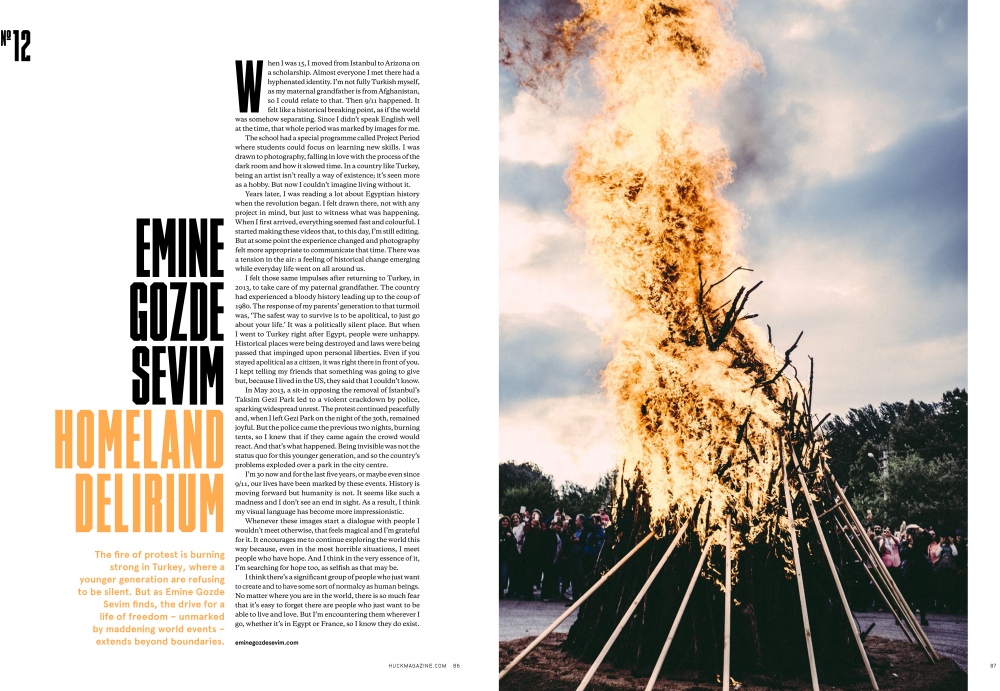When I was 15, I moved from Istanbul to Arizona on a scholarship. Almost everyone I met there had a hyphenated identity. I'm not fully Turkish myself, as my maternal grandfather is from Afghanistan, so I could relate to that. Then 9/11 happened. It felt like a historical breaking point, as if the world was somehow separating. Since I didn't speak English well at the time, that whole period was marked by images for me.
The school had a special programme called Project Period where students could focus on learning new skills. I was drawn to photography, falling in love with the process of the dark room and how it slowed time. In a country like Turkey, being an artist isn't really a way of existence; it's seen more as a hobby. But now I couldn't imagine living without it.
Years later, I was reading a lot about Egyptian history when the revolution began. I felt drawn there, not with any project in mind, but just to witness what was happening. When I first arrived, everything seemed fast and colourful. I started making these videos that, to this day, I'm still editing. But at some point the experience changed and photography felt more appropriate to communicate that time. There was a tension in the air: a feeling of historical change emerging while everyday life went on all around us.
I felt those same impulses after returning to Turkey, in 2013, to take care of my paternal grandfather. The country had experienced a bloody history leading up to the coup of 1980. The response of my parents' generation to that turmoil was, "˜The safest way to survive is to be apolitical, to just go about your life.' It was a politically silent place. But when I went to Turkey right after Egypt, people were unhappy. Historical places were being destroyed and laws were being passed that impinged upon personal liberties. Even if you stayed apolitical as a citizen, it was right there in front of you.
I kept telling my friends that something was going to give but, because I lived in the US, they said that I couldn't know. In May 2013, a sit-in opposing the removal of Istanbul's Taksim Gezi Park led to a violent crackdown by police, sparking widespread unrest. The protest continued peacefully and, when I left Gezi Park on the night of the 30th, remained joyful. But the police came the previous two nights, burning tents, so I knew that if they came again the crowd would react. And that's what happened. Being invisible was not the status quo for this younger generation, and so the country's problems exploded over a park in the city centre.
I'm 30 now and for the last five years, or maybe even since 9/11, our lives have been marked by these events. History is moving forward but humanity is not. It seems like such a madness and I don't see an end in sight. As a result, I think my visual language has become more impressionistic.
Whenever these images start a dialogue with people I wouldn't meet otherwise, that feels magical and I'm grateful for it. It encourages me to continue exploring the world this way because, even in the most horrible situations, I meet people who have hope. And I think in the very essence of it, I'm searching for hope too, as selfish as that may be.
I think there's a significant group of people who just want to create and to have some sort of normalcy as human beings. No matter where you are in the world, there is so much fear that it's easy to forget there are people who just want to be able to live and love. But I'm encountering them wherever I go, whether it's in Egypt or France, so I know they do exist.

